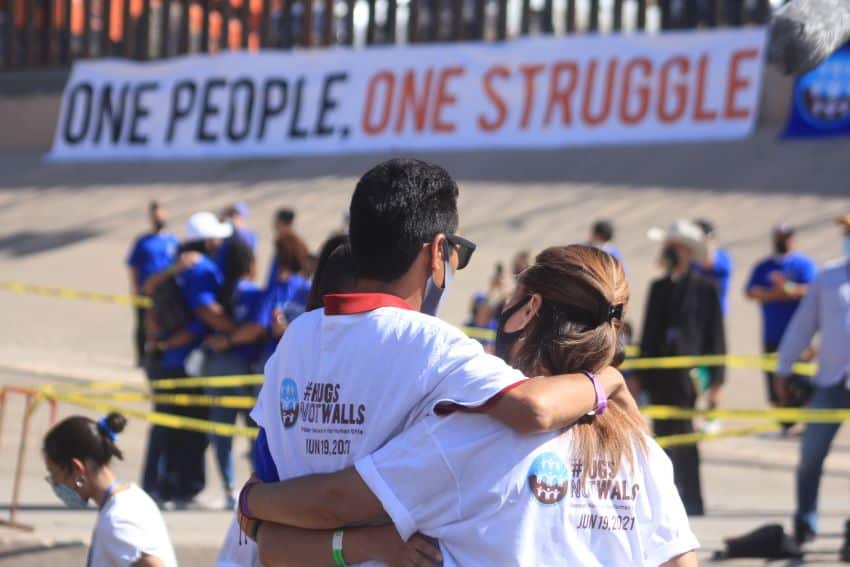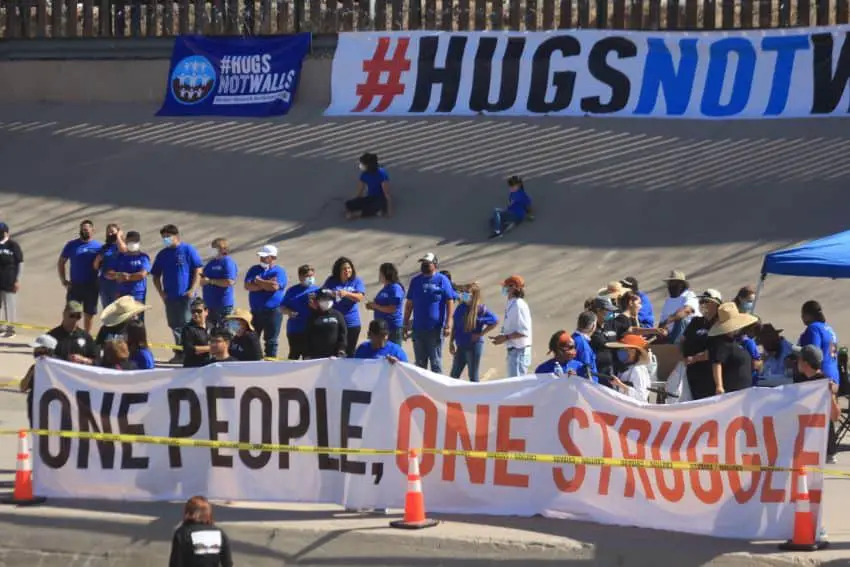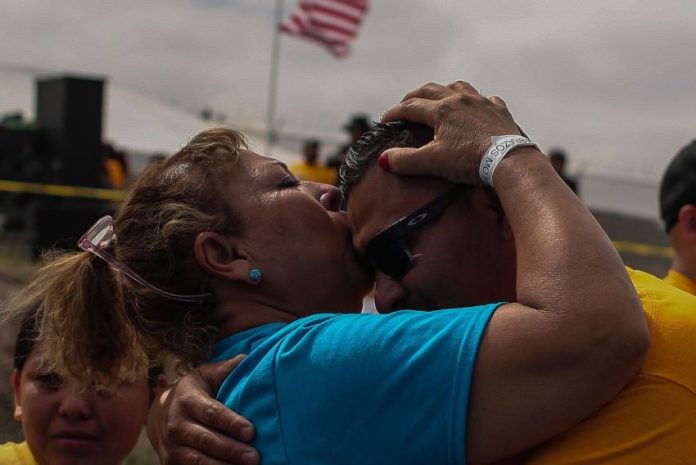Families separated by the Mexico-United States border briefly reunited on Saturday during the annual Hugs Not Walls event held on a stretch of the Rio Grande in Ciudad Juárez, Chihuahua.
Members of almost 200 families — some of whom hadn’t seen each other for years — shared hugs, kisses and time together during the event organized by the Border Network for Human Rights.

The gathering on a makeshift bridge across the Rio Grande allowed Mexicans who live in Mexico to meet with family members who reside in the United States, some of whom may not have legal status in the U.S. and therefore cannot easily return home after a visit to Mexico.
Shortly before Saturday’s reunion commenced, one Ciudad Juárez resident told the Associated Press that he was looking forward to seeing his United States-based sister.
“I haven’t seen her for a year, and trust me, even though it has only been one year, I feel it has been an eternity because we were always together,” said Samuel Sandoval.
“We ate together, we spent time together. … That’s why I’m looking forward to seeing my sister. I really want to see her and hug her,” he said.
A Reuters video showed a U.S.-based mother embracing her Mexico-based son, who was clearly overcome with emotion.
Brenda Gómez took part in another parent-child reunion on the Mexico-U.S. border.
“It was a beautiful experience to see my father, to embrace him, to feel the love of a father” said Gómez, who lives in Mexico.
“I hope God’s will is fulfilled with the upcoming elections [in the United States]. I hope God’s will is done during the election. That the right person will allow them to keep on doing this event,” she said.
“This allows many people to meet with relatives who they can’t see.”
This year, Hugs Not Walls took place just three days before Tuesday’s U.S. presidential election, in which immigration and border security are key battle lines in the contest between Democratic Party candidate, Vice President Kamala Harris, and Republican Party nominee and former president Donald Trump.
Fernando García, executive director and founder of the Border Network for Human Rights, said that security at the border was notably greater this year than when previous editions of the event were held.

“We did not have barbed wire, we did not have so many soldiers deployed in our community,” he said, referring to past family reunions on the border between Ciudad Juárez and El Paso, Texas.
“The barbed wire had to be opened so that the families could have this event,” said García, who formerly worked as a photojournalist in California.
He predicted that migration into the United States will continue no matter who wins the U.S. presidential election. Family reunions on the border will continue as well, García said.
“The border, deportation and immigration policies are separating families,” he said at Saturday’s event.
“You will see children and parents separated, spouses not living together,” García said.
In an article published in July, the Washington D.C.-based Pew Research Institute said that an estimated 4 million unauthorized immigrants from Mexico were living in the United States.
That figure “was the lowest number since the 1990s,” the think tank said, adding that “in 2022, Mexico accounted for 37% of the nation’s unauthorized immigrants, by far the smallest share on record.”
With reports from AP
